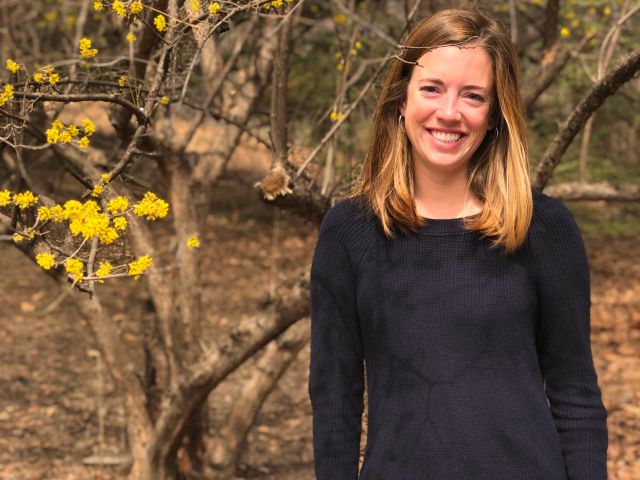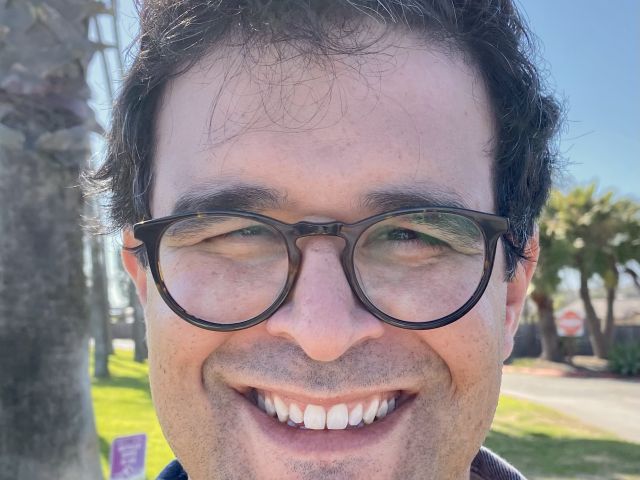Climate Innovation Postdoctoral Fellows
Thanks to funding provided by the State of California, we are able to support UCSB’s first cohort of Climate Innovation Fellows, in recognition of the invaluable role postdoctoral researchers play in innovation and commercialization success.
Postdoctoral Fellows participating in this program will work closely with both their faculty advisor and campus innovation and entrepreneurship (I&E) programs. The program's emphasis will be on providing the focused resources and training needed to successfully transform and deploy university innovations for societal and economic impact. In addition to performing translational research, Fellows will work with our Climate Action Innovation programs for customized support of the target innovation. Fellows will also participate in Regional Climate Action Innovation Symposia to understand climate change challenges faced by communities across the state and identify opportunities and solutions within their fields.
Fellows will have access to resources, year-round programming, and special events related to climate resilience. Fellows will be required to participate in a new Climate Innovation360 program, which provides series of workshops designed to teach researchers the characteristics that innovations must possess in order to be successfully deployed including marketing validation/customer discovery (based on the NSF I-Corps approach), manufacturing and scalability needs, market size analysis, and strong intellectual property protection (when applicable).
Eligible research can be in any discipline (including the Bren school, physical sciences, biology, engineering, earth and environmental sciences, marine sciences, social and behavioral sciences) that supports climate resilience. The fellowships provide fifty percent (50%) of the Postdoctoral Fellow’s salary for two years along with benefits, with the remaining support provided by faculty engaged in highly translatable Climate Action research; applications must be coordinated with the relevant faculty supervisor(s). Fellowship recipients must have completed a Ph.D. in science or engineering after June 30, 2020, and prior to their arrival at CNSI. Applications are restricted to fellows proposing translational I&E activities for technologies or innovations that clearly address critical state climate action goals.
- Eligibility
-
Both current and future postdoctoral researchers are eligible, and applicants must intend to perform their research at UCSB under the direction of a UCSB faculty member. Additionally, applicants must have received their PhDs after June 30, 2020, to qualify for the program.
Graduate students who will have obtained their PhDs prior to Winter 2022 are encouraged to apply for the current competition. We particularly welcome applications from candidates who can contribute to and promote the breadth of the academic community at UC Santa Barbara.
- Application Process
-
Only applications submitted online will be considered in the application review process. All application materials including letters of recommendation and research plans are due by the published application deadline.
- Application Content
-
Applications must include:
- A cover letter summarizing the applicant's background listing the group(s) with which the research will be pursued.
- A one-page summary, to be completed in coordination with the proposed faculty advisor, of the UCSB research, technology or innovation that will be the primary focus of the Fellows I&E activities and how the research, technology or innovation will address state climate action priorities (https://uckeepresearching.org/resources/). References may be included on a separate page and do not count toward the one-page research summary limit.
- A complete curriculum vitae of the applicant's educational and professional experience, listing all publications, and summarizing the applicant’s contributions to teaching, mentorship and service.
- A one-page mentoring plan to be submitted directly by the proposed faculty mentor to describe the training environment as well as plans for professional development (e.g., in research, ethics, teaching, service, and promotion of diversity and equal opportunity).
- Three supporting letters of recommendation. One must be prepared by your actual or proposed UCSB advisor(s), to be submitted directly by the recommenders.
Email inquiries can be sent to: climateactionfellowships@cnsi.ucsb.edu.
- Target Research Groups
-
Applicants must indicate in their cover letter the group(s) with whom they would be interested in working; prior contact with potential advisors is mandatory. Collaborative research projects are highly encouraged.
Apply
The application is currently closed.
Current Fellows
Climate Action Fellows
2023

Dr. Hyunggon Park
Practical, affordable desalination systems provide a pure source of long-term, drought-proof water, increasing the dependability of local water supplies. Both objectives are critical to addressing the state’s water needs as climate change stresses current supply systems. Current desalination processes are energy intensive. Passive thermal desalination processes address this challenge by using sunlight as heat for distillation but have significant limitations that hinder effectiveness, such as salt accumulation and low solar-to-water conversion efficiency. As a Climate Innovation Fellow, Dr. Park will be refining a novel, passive, salt-rejecting desalination system that can operate continuously for seven (7) days with no decay in efficacy.

Dr. Lauren Smith
Seaweed aquaculture has some of the lowest impact and highest carbon mitigation potential of any food source. With the first offshore kelp farm permitted in California, and federal legislation actions putting seaweed center stage (including the 2023 Coastal Seaweed Farm Act), seaweed is poised to play a critical role in climate adaptation. Kelp and other seaweeds are susceptible to marine heatwaves, which are occurring with increased frequency. As a Climate Innovation Fellow, Dr. Smith will be testing a novel technique to thermally shock juvenile kelp to increase resistance to marine heatwaves and create a more stable crop to take advantage of both the food and carbon mitigation properties of this important species.

Dr. Guillermo Terrén Serrano
Power grid operators rely on energy demand forecasts to determine the unit commitment and operating reserve requirements that minimize operational costs and ensure system reliability. Clean energy sources like wind and solar can be unpredictable, creating uncertainty in the amount of energy generated on a given day. Errors in both energy demand and clean energy forecasts can create a mismatch between supply and demand and decrease the reliability of the electricity system. As a Climate Innovation Fellow, Dr. Terrén Serrano will be optimizing novel forecasting models capable of accommodating the variability of clean energy sources, to foster more reliable and accurate energy delivery.


